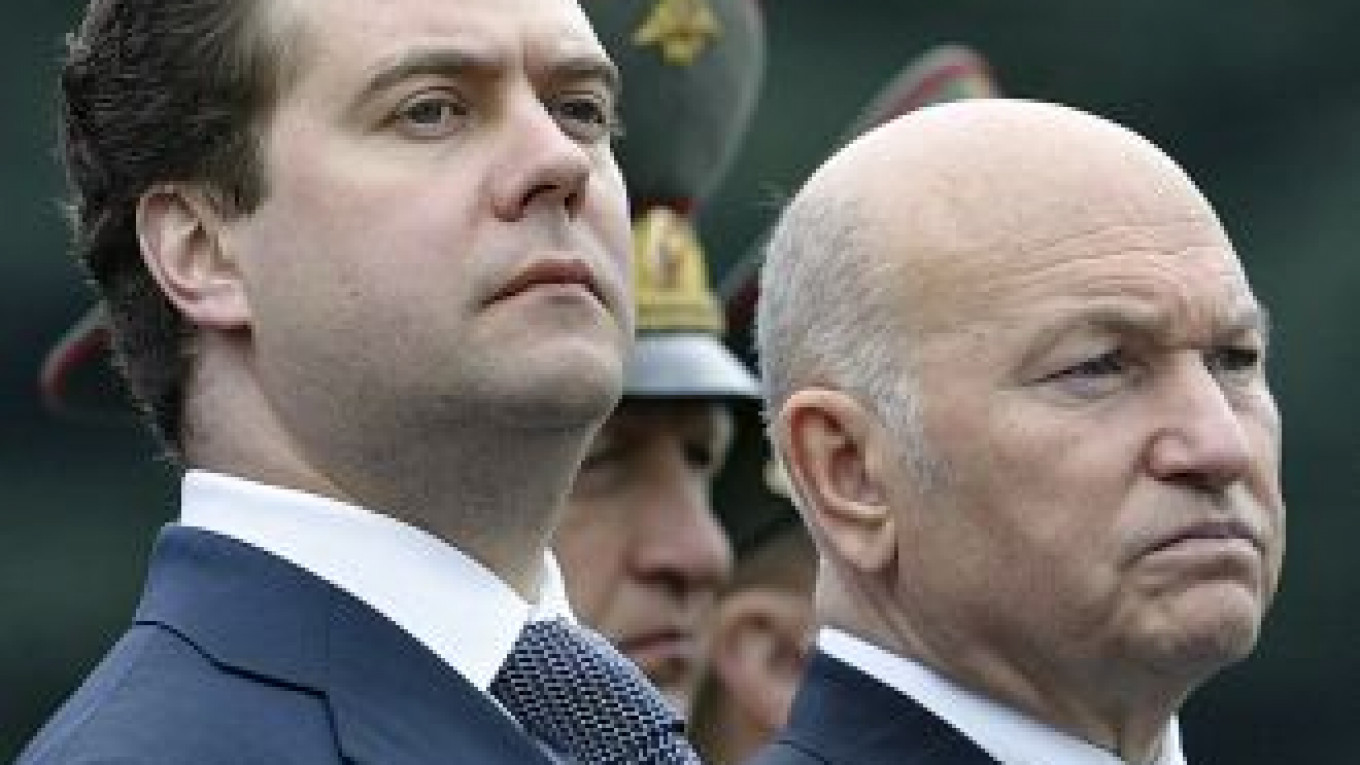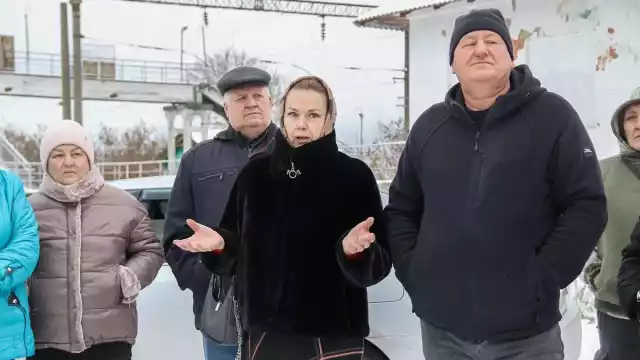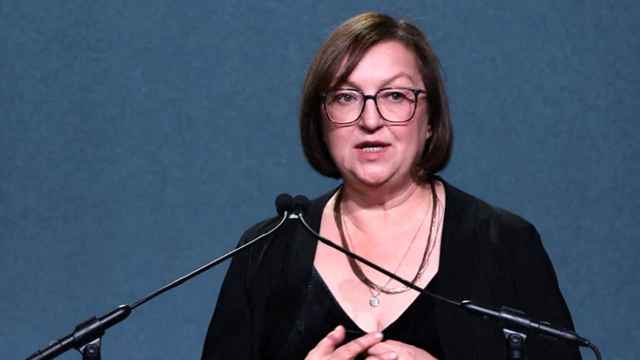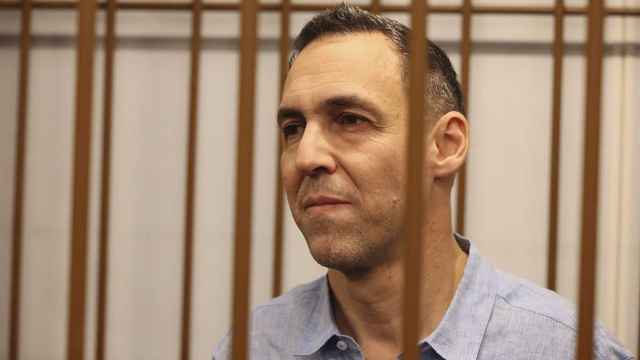Former Mayor Yury Luzhkov and his billionaire wife, Yelena Baturina, have attacked the Kremlin with new accusations, threatening lawsuits and denouncing President Dmitry Medvedev as "a battering ram for racketeers."
Medvedev ordered this week a criminal check into a 2003 deal that saw a land plot in western Moscow, previously reserved for diplomatic missions, sold to subsidiaries of Baturina's Inteko real estate developer.
Analysts said Luzhkov and Baturina were fighting to uphold their reputation in the West, while the spat itself was a face-saving offensive by the outgoing president.
Luzhkov announced Thursday that he was filing a defamation suit against Kremlin chief of staff Sergei Naryshkin, who said a day earlier that Medvedev had fired the mayor last year for rampant corruption in City Hall. Baturina said earlier that she would file a similar lawsuit.
In an interview to Izvestia, published online late Wednesday, Luzhkov reiterated his claim that Medvedev was targeting him "on political grounds."
Luzhkov, dismissed by Medvedev over a "loss of confidence," has been summoned for questioning as part of a probe into a loan of 12.7 billion rubles ($416 million) in city funds that Bank of Moscow extended to the Premier Estate bank. Investigators say the loan wound up in Baturina's personal account.
The mayor, who is currently traveling across Europe, told Izvestia that he feared arrest upon his return to Russia but would go back nevertheless.
He said he did not want to repeat the fate of the jailed tycoon Mikhail Khodorkovsky, whose arrest is widely believed to have been politically motivated.
But Luzhkov, who criticized Medvedev's political skills on Radio Free Europe last week, said his "honor" was "more important" for him than his freedom.
He did not say when exactly he would return to Russia to for questioning. He and Baturina, who has moved to London after his dismissal, have said he might return around Nov. 10.
Medvedev's spokeswoman Natalya Timakova dismissed Luzhkov's allegations as "laughable."
"That would be too much honor for a retired official," she said, sarcastically, RIA-Novosti reported.
Instead of giving interviews, Luzhkov "should just go back to Moscow and testify," she said.
Neither she nor Naryshkin commented on the threatened defamation lawsuits against the Kremlin's chief of staff.
Baturina was even more outspoken on Dozhd television on Wednesday night, saying Medvedev "works as a battering ram for racketeers" who want to "take away" the land plot in western Moscow.
Baturina, who sold Inteko last month, said on Dozhd that Medvedev was "made to say these words" about the deal's illegal nature. She said she obtained the land legally and has already won several lawsuits over the sale.
Anna Lunyova, director general of the Center for Political Information, a think tank, said Luzhkov's allegations stemmed from his "interest to preserve his image in the eyes of foreign partners."
Luzhkov provoked Medvedev by saying he would make a weak prime minister, Lunyova said by telephone. Medvedev is planning to switch places with Prime Minister Vladimir Putin after the presidential election in March.
Luzhkov is fighting for his reputation, while Medvedev wants to show that he is not a lame duck, said Mikhail Vinogradov, an analyst with the Petersburg Politics Foundation, a think tank.
A Message from The Moscow Times:
Dear readers,
We are facing unprecedented challenges. Russia's Prosecutor General's Office has designated The Moscow Times as an "undesirable" organization, criminalizing our work and putting our staff at risk of prosecution. This follows our earlier unjust labeling as a "foreign agent."
These actions are direct attempts to silence independent journalism in Russia. The authorities claim our work "discredits the decisions of the Russian leadership." We see things differently: we strive to provide accurate, unbiased reporting on Russia.
We, the journalists of The Moscow Times, refuse to be silenced. But to continue our work, we need your help.
Your support, no matter how small, makes a world of difference. If you can, please support us monthly starting from just $2. It's quick to set up, and every contribution makes a significant impact.
By supporting The Moscow Times, you're defending open, independent journalism in the face of repression. Thank you for standing with us.
Remind me later.






